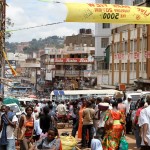Uganda’s economy grew by between 6.5 and 7.0 per cent in 2021, beating projections due to effects of Covid-19 restrictions, Bank of Uganda (BoU) has said.
According to the BoU Monetary Policy statement for January, high-frequency indicators of economic activity for October 2021 to January 2022 show that the economy has rebounded from the Covid-19 induced lockdowns.
“The economy is estimated to have bounced back in 2021, growing in the range of 6.5-7.0 per cent, although it came after a 1.5 per cent contraction in 2020 as the pandemic forced parts of the economy to shut,” the report reads.
“Indeed, the high-frequency indicators of economic activity for October 2021 to January 2022 suggest that the economy was on a strong Rebound. Domestic demand is making a strong comeback as COVID-19 related restrictions are eased, adding to the gains from robust external demand,” it adds.
The report adds that considering this recovery and signs that the effect of the Omicron outbreak on economic activity has been relatively small, the outlook for economic growth is more positive than earlier projected.
But BoU warns that in 2022, there could be a loss of growth momentum as globa1 factors turn adverse, but real GDP is projected to grow by around 6 per cent as domestic demand recovery broadens.
“However, lower global growth, continued supply chain disruptions and tighter global monetary and financing conditions could constrain external demand. In addition, the recovery might remain fragile and uneven across sectors. Over the medium term, government investment in infrastructure is expected to enhance productive capacity and coupled with increased social spending and a recovery in tourism, should bring annual growth above 7 per cent,” the report says.
On the domestic front, uncertainty about the evolution of the pandemic continues to cast a shadow on the economic recovery.
“New COVID-19 variants and a resurgence of lockdown measures would weigh on the outlook. Another important source of uncertainty for the outlook is the public investment and how this will be financed under the fiscal consolidation path, which is necessary to keep debt sustainable and avoid the risk of debt distress. The slow execution of public investment projects and further delays in oil investments could dampen the growth outlook,” the report states.








